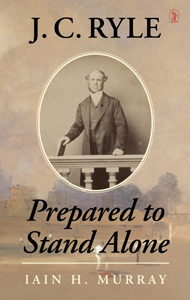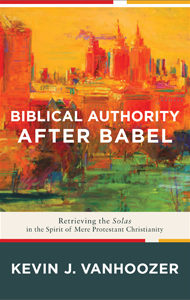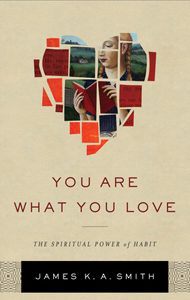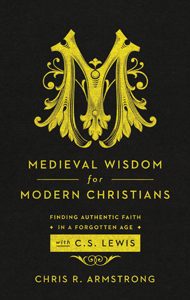 |
 |
 |
 |
J.C. Ryle: Prepared to Stand Alone by Iain H. Murray
Review by S. Craig Sanders
Best known today for his classic work Holiness, Bishop J.C. Ryle has much to offer Christians for his steadfastness to biblical doctrine in the face of opposition. In a recent biography, Iain H. Murray examines Ryle’s life and bold convictions in the context of 19th-century controversies in the Church of England and the separatist movements.
Similar to his 50-year-old work The Forgotten Spurgeon, Murray renews focus on Ryle’s role in defending the truths of God’s Word both in denominational controversies but also amid a cultural shift in perception of religious authority. He also follows the remarkable trajectory of Ryle’s life and demonstrates the significant moments of his subject’s conversion and pastoral calling. Murray concludes his work with a chapter on Ryle’s message for the Church of England today and what his beliefs about grace and salvation can teach Christians in tough times.
Biblical Authority After Babel by Kevin J. Vanhoozer
Review By Andrew J.W. Smith
The 500th anniversary of the Protestant Reformation represents one of the most radical shifts of any religion in world history which — depending on one’s perspective — either soiled the true church or rediscovered the core of Christian faith. Kevin J. Vanhoozer, theology professor at Trinity Evangelical Divinity School, offers a helpful evangelical reappropriation of fundamental tenets of the Reformation — the five solas of the movement’s monergistic soteriology.
In what Vanhoozer calls “mere Protestant Christianity,” believers can find the unity of two apparently opposite poles of Catholicism and Protestantism: “church alone” and “Scripture alone.”
“The kind of Protestantism that needs to live on is not the one that encourages individual autonomy or corporate pride but the one that encourages the church to hold fast to the gospel, and to one another,” Vanhoozer writes.
You Are What You Love: The Spiritual Power of Habit by James K.A. Smith
Review by Andrew J.W. Smith
For the last 2,000 years of church history, all Christians have struggled with a core question of the sanctification process, one echoed in 1 John and Romans 7 — If we know something is sinful, and we have the theological knowledge and information necessary to make such an assessment, then why do we continue to sin? While genuine Christians do not live under the dominion of sin, we all still “stumble in many ways,” as James says. Why? Is there some piece of information or theological acuity we lack?
According to James K.A. Smith and his book, You Are What You Love: The Spiritual Power of Habit, the effects of the Fall are not merely cognitive, but also affective; the reality of our brokenness seeps not only into our brains, but also our splankna — our guts or desires. To love God well, we must receive transformation at a deeper level than the intellectual, and to do this, we need a godly imagination and rich community life.
Medieval Wisdom for Modern Christians: Finding Authentic Faith in a Forgotten Age with C.S. Lewis by Chris R. Armstrong
Review by S. Craig Sanders
“Chronological snobbery” is a term C.S. Lewis coined to describe the notion that new is always better, whether it be art, science, and philosophy. But I find it equally troubling when many Lewis devotees subject themselves to their own chronological snobbery by concluding Lewis’ writing and theological insight is far superior or more original than anyone before or since.
This is one of many reasons why I find Chris R. Armstrong’s recent work, Medieval Wisdom for Modern Christians, to be so helpful for 21st-century evangelicals who love Lewis without trying to understand his intellectual heritage. Like many of his influences and fellow writers — among them G.K. Chesterton, J.R.R. Tolkien, and Dorothy Sayers — Lewis studied and adopted a medieval worldview which is embedded in all of his popular and academic writings. Armstrong describes this medievalism as finding a “vividly sacramental sense of the aliveness of all things, to be treasured in the face of much that was deadening in modernity.”
“I think that medievalism was important for Lewis not only as a source of understanding of the truth of things but also as a primary way that his ‘chest’—the seat of his affections and thus his moral reasoning—received its formation,” Armstrong writes. “He was medieval not only in his mind but also in his heat.”
While young evangelicals search for an authentic faith rooted in tradition and mystery, Lewis embodies that in his discovery of the incarnation of God and the immortal destiny of humans. Even if you disagree with Armstrong’s fondness for tradition as a guide in theology, ethics, and spirituality, this book is a necessity for understanding the medieval roots of Lewis’ worldview.




